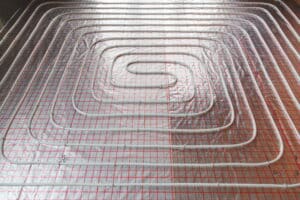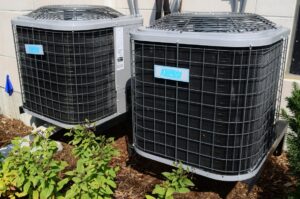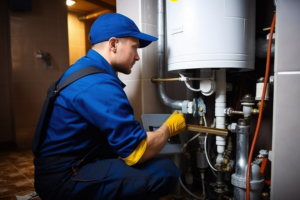
Are you building a new home? Are you doing a remodel that gives you the opportunity for a heating system upgrade? Then radiant heating in Celco is definitely worth your attention. While forced air heaters like furnaces are extremely common, those using radiant heating systems often cannot imagine opting for anything else! There are a lot of great benefits to be had when you choose radiant heating, especially when you allow the professionals on our team to handle your radiant heating services.
Today, we want to help you to better understand all that radiant heating has to offer, while also stressing that radiant heating is not the right option for every home or every homeowner. If it were, then there would not be so many different heating options to choose from. Review the following information, consider what you like and/or don’t like about your existing heating system, and reach out to a member of our team with any questions that you may have.
How Radiant Heating Works
Heating air and distributing that air throughout one’s home via a system of ductwork allows for the quick and effective heating of one’s home. However, this forced air heat distribution also allows for a number of problems to develop. Duct leaks, in particular, can really drag down energy efficiency and also result in poor indoor air quality. This is why many homeowners turn to radiant heating.
Unlike forced air heaters (furnaces, heat pumps), radiant heating systems do not apply heat to the air itself. They apply heat to a heat transfer fluid in hydronic heating systems. That means that water is heated by a boiler, and that hot water is then piped around the house in hydronic tubing. Typically, this is installed beneath the floor, applying heat directly to the floor and allowing that heat to transfer to other objects, including bodies, throughout the house.
The Benefits of Radiant Heating
Hydronic radiant systems are incredibly efficient. So too are electric radiant systems, but the cost of electricity is high enough that it can still be an expensive way to heat a home, regardless of the system’s efficiency. Because no heat is lost to duct leaks, and because the heat is introduced at the ground level, radiant heating really allows for exceptional efficiency in heating one’s home.
Radiant heating systems also have fewer moving parts than forced air heaters, making them very reliable. Boilers also have very long lifespans when compared to a furnace. If you are interested in investing in long-term comfort, it is tough to argue with a radiant heater.
Are There Any Downsides?
Of course, just as there is with any heating system. Radiant heating systems are more expensive to install than furnaces or heat pumps. They don’t share ductwork, obviously, requiring the installation of their own heat distribution system. Because of the in-floor heating setup, these systems are also best installed at the time of construction or during renovations. They can be installed in existing properties at any times, but it is disruptive. Contact us with any questions that you may have.






